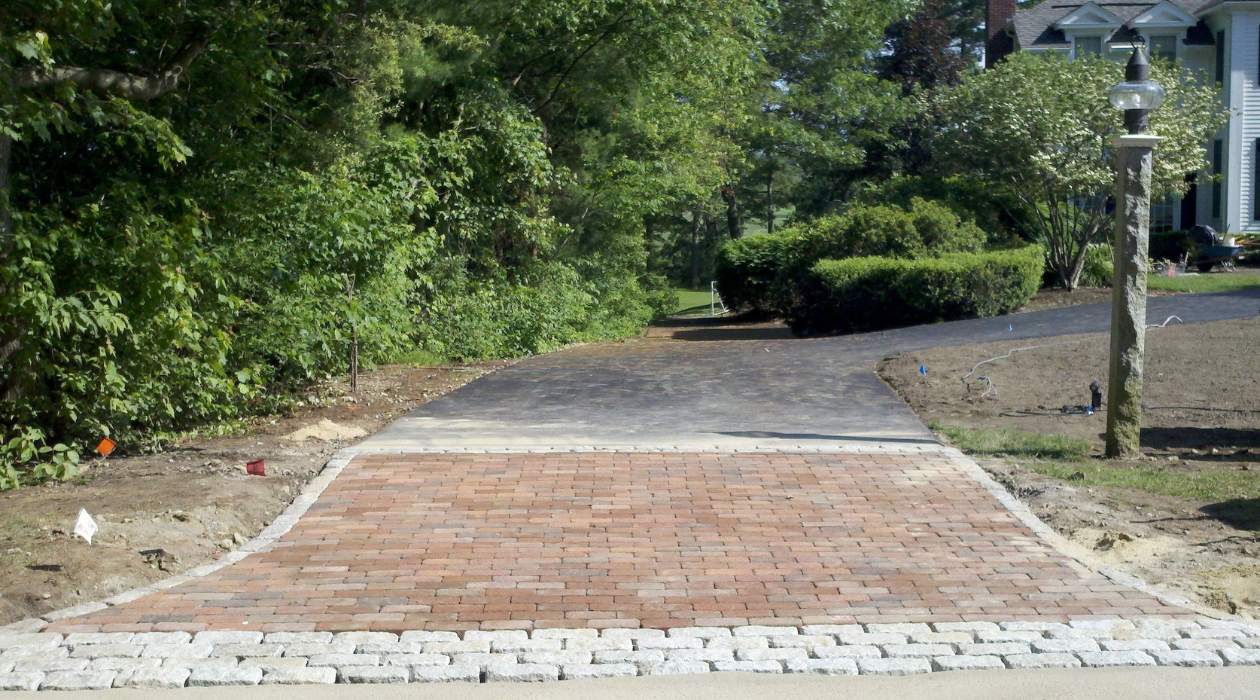

Articles
What Is A Driveway Apron
Modified: May 6, 2024
Discover the importance of driveway aprons with our informative articles. Learn what they are and how they enhance your property's curb appeal.
(Many of the links in this article redirect to a specific reviewed product. Your purchase of these products through affiliate links helps to generate commission for Storables.com, at no extra cost. Learn more)
Introduction
A driveway apron is an essential component of any residential or commercial property with a driveway. It serves as the transition space between the driveway and the street or sidewalk. While it may seem like a small detail, the driveway apron plays a crucial role in ensuring the stability and longevity of the entire driveway structure.
Understanding what a driveway apron is, its purpose, types, materials used, installation process, and maintenance requirements is important for homeowners and property owners alike. In this article, we will delve into the world of driveway aprons, exploring their definition, benefits, potential issues, and everything in between.
So, let’s dive in and discover what makes the driveway apron such a crucial element in any property’s landscape.
Key Takeaways:
- A driveway apron is more than just a transition space; it provides stability, protection, and aesthetic appeal. Understanding its purpose and maintenance can ensure a long-lasting and visually appealing property entrance.
- From concrete to pavers, the choice of material for a driveway apron impacts durability and aesthetics. Proper installation and maintenance are crucial for preventing potential issues and maximizing the benefits of a well-designed driveway apron.
Read more: What Is An Integral Apron Bathtub
Definition of a Driveway Apron
A driveway apron refers to the section of a driveway that extends from the main pavement or road to the beginning of the actual driveway. It is typically wider and made from a different material than the rest of the driveway. The purpose of the driveway apron is to provide a smooth and durable transition between the street or sidewalk and the driveway itself.
In simpler terms, the apron acts as a threshold, creating a seamless connection between the public road and the private property. It serves as a protective barrier for the main driveway, preventing damage from heavy traffic, moisture, and other external elements.
The size and shape of a driveway apron can vary depending on the specific requirements of the property. In residential areas, driveway aprons are usually narrower and designed to accommodate individual vehicles. Commercial or industrial properties may have wider and more expansive aprons to cater to larger vehicles and heavier traffic.
Overall, the driveway apron is a vital component of any driveway system, as it ensures a smooth and safe transition between the road and the private property. It not only enhances the aesthetic appeal of the property but also plays a crucial role in maintaining the structural integrity of the entire driveway.
Purpose of a Driveway Apron
The primary purpose of a driveway apron is to provide a smooth and stable transition between the road and the driveway. It serves as a protective barrier, preventing damage to the main driveway and ensuring the longevity of the entire structure.
Here are some key purposes of a driveway apron:
- Stability: The driveway apron acts as a stable foundation for the driveway, providing a solid base for vehicles to transition from the road onto the driveway. It helps distribute the weight of vehicles evenly, minimizing the risk of cracks, sinking, or other types of damage.
- Accessibility: By creating a smooth and level surface, the driveway apron ensures easy accessibility for vehicles, pedestrians, and even individuals with mobility challenges. It eliminates any potential trip hazards and allows for a seamless entry onto the property from the public road.
- Water Drainage: A properly designed driveway apron helps divert water away from the main driveway, preventing water accumulation and potential damage. The slope and layout of the apron are crucial in ensuring effective drainage and reducing the risk of water-related issues, such as erosion or flooding.
- Protection: The driveway apron acts as a protective barrier, shielding the main driveway from the impact of heavy traffic, weather conditions, and other external elements. It can withstand the weight of vehicles and prevent damage that can occur from constant friction between the road and the driveway.
- Enhanced Aesthetic Appeal: In addition to its functional purposes, the driveway apron also contributes to the overall aesthetic appeal of the property. It can be designed using various materials, colors, and patterns to complement the architectural style of the building and enhance the curb appeal.
Overall, the primary purpose of a driveway apron is to ensure a smooth and safe transition between the road and the driveway, while also protecting the integrity of the driveway and enhancing the beauty of the property.
Types of Driveway Aprons
Driveway aprons come in a variety of types, each offering unique characteristics and visual appeal. The choice of driveway apron type depends on factors such as the property’s aesthetic preferences, budget, and functional requirements. Let’s explore some popular types of driveway aprons:
- Concrete Aprons: Concrete aprons are one of the most common types of driveway aprons. They are durable, long-lasting, and require minimal maintenance. Concrete aprons can be poured in different shapes and sizes to accommodate various driveway configurations. They offer a clean and classic look.
- Asphalt Aprons: Asphalt aprons are another popular option for driveway aprons. They are flexible and can withstand the weight of vehicles. Asphalt provides a smooth and seamless transition from the road to the driveway. However, regular maintenance is required to prevent cracks and potholes.
- Paver Aprons: Paver aprons are made from interlocking concrete or natural stone pavers. They offer versatility in terms of design and can be customized to create intricate patterns or blend seamlessly with the overall hardscape. Paver aprons are visually appealing but may require occasional re-leveling or replacement of individual pavers over time.
- Gravel Aprons: Gravel aprons are a cost-effective option for driveway aprons. They provide good drainage and are relatively easy to install. Gravel aprons offer a rustic, natural look and can be refreshed by adding more gravel when needed. However, they may require periodic maintenance to prevent shifting and unevenness.
- Stamped Concrete Aprons: Stamped concrete aprons are created by imprinting patterns, textures, or even replicating the look of natural materials onto freshly poured concrete. They offer endless possibilities in terms of design and can mimic the appearance of cobblestone, brick, or other materials. Stamped concrete aprons enhance the visual appeal of the property but may require occasional resealing to preserve the surface.
These are just a few examples of the types of driveway aprons available. Other options include cobblestone, brick, or even green alternatives like pervious concrete or grass pavers. It’s essential to consider factors such as durability, maintenance requirements, and aesthetic preferences when choosing the right type of driveway apron for your property.
Materials Used for Driveway Aprons
The choice of materials for a driveway apron is a crucial consideration as it determines the durability, aesthetics, and maintenance requirements of the apron. Different materials offer various benefits and visual appeal. Let’s explore some common materials used for driveway aprons:
- Concrete: Concrete is a popular choice for driveway aprons due to its durability, versatility, and ability to withstand heavy loads. It can be poured into different shapes and sizes to match the driveway’s design. Concrete aprons offer a sleek and clean appearance, require minimal maintenance, and are resistant to cracking and weather damage.
- Asphalt: Asphalt is another commonly used material for driveway aprons. It provides a smooth and seamless transition from the road to the driveway. Asphalt is flexible, making it resistant to cracking and frost heave. It requires regular maintenance, such as sealing, to prevent cracks and potholes.
- Pavers: Pavers, made from materials like concrete, natural stone, or brick, are a versatile option for driveway aprons. They offer aesthetic appeal and customizable designs. Pavers can be arranged in various patterns, colors, and textures to complement the overall landscape. They may require occasional re-leveling or replacement of individual pavers over time.
- Gravel: Gravel is a cost-effective and popular material option for driveway aprons. It provides good drainage, allows water to penetrate the soil, and prevents water accumulation on the surface. Gravel aprons offer a rustic and natural look, but they require periodic maintenance to prevent shifting and ensure an even surface.
- Cobblestone: Cobblestone aprons add a sophisticated and timeless look to a driveway. They are made from natural stone and provide a durable and eye-catching option. However, cobblestone aprons can be more expensive and may require occasional re-leveling if the stones shift over time.
When choosing the material for your driveway apron, consider factors such as budget, aesthetic preferences, maintenance requirements, and the overall architectural style of your property. It’s important to select a material that not only enhances the visual appeal but also withstands the elements and offers long-term durability.
A driveway apron is the section of the driveway that extends from the curb to the main portion of the driveway. It is typically made of a durable material like concrete or asphalt to withstand vehicle traffic and provide a smooth transition from the street to the driveway.
Read also: 14 Best Grill Apron for 2025
Installation Process of a Driveway Apron
The installation of a driveway apron requires careful planning and execution to ensure a sturdy and seamless transition from the road to the driveway. While it is recommended to hire a professional contractor for the installation, it’s helpful to be familiar with the general steps involved in the process. Here is a typical installation process for a driveway apron:
- Preparation: The first step is to prepare the area where the apron will be installed. This involves removing any existing pavement, rocks, or debris. The ground is then leveled and compacted to create a stable base for the apron.
- Frame Construction: Once the area is prepared, a wooden or metal frame is constructed to outline the dimensions of the apron. The frame helps in ensuring the apron’s proper shape, size, and slope.
- Excavation: Next, the soil within the frame is excavated to a sufficient depth to accommodate the thickness of the apron material. The depth will depend on the specific requirements and materials chosen.
- Sub-base Installation: A layer of compacted aggregate, such as crushed stone, is then installed as a sub-base. This provides stability and helps with proper drainage. The sub-base is leveled and compacted to ensure a solid foundation.
- Material Placement: The chosen material, such as concrete, asphalt, pavers, or gravel, is then placed within the frame. It is spread evenly and compacted to create a level surface. The material is typically poured or laid in sections to ensure proper control and smooth transitions.
- Finishing: Once the material is in place, the surface is finished using appropriate techniques. For concrete or asphalt, this may involve troweling or stamping to create a desired texture or pattern. Pavers or gravel aprons may require proper alignment and leveling of the elements.
- Curing and Sealant (if necessary): Depending on the material, a curing period may be necessary to allow it to harden and settle properly. If needed, a sealant can be applied to protect the surface and enhance its durability.
It’s important to note that the specific installation process may vary depending on the material chosen and local regulations. Hiring an experienced contractor is highly recommended to ensure proper installation, adherence to building codes, and a successful outcome.
By following these steps and working with professionals, you can ensure a well-installed driveway apron that not only enhances the appearance of your property but also provides a smooth and durable transition from the road to your driveway.
Maintenance and Repairs of a Driveway Apron
Proper maintenance and timely repairs are crucial for ensuring the longevity and functionality of a driveway apron. Routine maintenance helps prevent damage, deterioration, and costly repairs down the line. Here are some essential maintenance tips for a driveway apron:
- Cleaning: Regularly sweep or hose down the driveway apron to remove dirt, leaves, and debris. This prevents them from accumulating and potentially causing staining or damage to the surface.
- Sealing: Depending on the material used for the apron, sealing may be recommended. This helps protect the surface from water penetration, UV rays, and other elements that can lead to cracking, fading, or deterioration. Consult with a professional to determine the appropriate sealing schedule for your specific apron material.
- Inspect for Damage: Periodically inspect the driveway apron for any signs of cracks, potholes, or sinking. Catching these issues early allows for prompt repairs, preventing further damage and ensuring the safety and stability of the apron.
- Repair Cracks: Small cracks can be repaired using appropriate fillers or sealants specific to the apron’s material. Follow the manufacturer’s instructions for application and allow sufficient curing time before resuming regular use.
- Pothole Repair: In the case of potholes or larger surface damage, it is recommended to consult a professional contractor for proper repairs. They have the expertise and tools to assess the extent of the damage and provide the necessary repairs to restore the apron’s integrity.
- Preventative Measures: To minimize damage, avoid excessive weight on the apron, such as parking heavy vehicles or using sharp objects that can cause scratches or punctures. Use caution when using snowplows or shovels during winter to prevent damage to the surface.
Regular maintenance and prompt repairs are essential for preserving the integrity and appearance of your driveway apron. By following these maintenance tips and addressing any issues promptly, you can ensure a long-lasting and durable driveway apron that enhances the functionality and aesthetic appeal of your property.
Benefits of Having a Driveway Apron
A properly installed and maintained driveway apron offers numerous benefits for homeowners and property owners. Here are some key advantages of having a driveway apron:
- Smooth Transition: The driveway apron provides a seamless and smooth transition from the road to the driveway, ensuring a comfortable entry and exit for vehicles.
- Enhanced Curb Appeal: A well-designed driveway apron can significantly enhance the overall curb appeal and aesthetics of the property. It adds a polished and inviting look to the entrance.
- Damage Prevention: The driveway apron acts as a protective barrier, preventing damage to the main driveway from heavy traffic, weather conditions, and other external elements. It reduces the risk of cracks, sinking, or other types of deterioration.
- Improved Safety: A properly designed and maintained driveway apron helps in minimizing potential tripping hazards for pedestrians and providing a safe path for vehicles to enter and exit the property.
- Longevity of the Driveway: By providing a stable foundation and protecting the main driveway, the apron contributes to the longevity of the entire driveway structure. It helps distribute the weight of vehicles evenly and prevents premature wear and tear.
- Easy Accessibility: The driveway apron ensures easy accessibility for vehicles, pedestrians, and individuals with mobility challenges. It eliminates any potential obstacles, making it convenient for everyone to enter and exit the property.
- Proper Drainage: A well-designed driveway apron facilitates effective water drainage, preventing water accumulation and potential damage to the driveway. This helps in avoiding issues such as erosion, flooding, or water seepage.
- Increased Property Value: Having a professionally installed and well-maintained driveway apron can enhance the overall value of the property. It adds to the appeal and functionality, making it more attractive to potential buyers or tenants.
- Customization Possibilities: Depending on the material and design choices, a driveway apron offers customization possibilities. It can be tailored to match the architectural style, personal preferences, or specific requirements of the property owner.
- Convenience: A driveway apron provides a designated and easily identifiable area for vehicles to enter and exit the property. It eliminates the need for maneuvering or parking on the road, enhancing convenience and reducing traffic congestion.
These benefits demonstrate the importance of having a well-designed and properly maintained driveway apron. Beyond its functional purposes, a driveway apron adds beauty, protection, and value to your property, creating a welcoming entrance and ensuring a smooth transition between the public road and your private driveway.
Potential Issues with Driveway Aprons
While driveway aprons offer numerous benefits, there are potential issues that can arise due to various factors. Being aware of these potential issues can help homeowners and property owners address them promptly and prevent any further damage. Here are some common issues that can occur with driveway aprons:
- Cracking: Over time, driveway aprons can develop cracks due to factors such as heavy traffic, freeze-thaw cycles, and settling of the ground. Cracks not only compromise the aesthetic appeal but can also lead to further damage if left unaddressed.
- Potholes: Insufficient base preparation or heavy vehicle use can result in potholes in the driveway apron. Potholes not only diminish the visual appeal but also pose a hazard to vehicles and pedestrians.
- Sinking and Settling: Inadequate compaction of the ground during installation or poor soil conditions can cause the apron to sink or settle over time. This can lead to an uneven surface and potential water pooling.
- Water Damage: Improper drainage or insufficient slope can result in water accumulation on the apron. This can lead to erosion, cracks, and deterioration of the materials over time.
- Staining: Certain materials, such as concrete or pavers, can be susceptible to staining from substances like oil, grease, or chemicals. Stains not only affect the appearance but can also be challenging to remove without proper cleaning techniques.
- Maintenance Requirements: Driveway aprons, like any other structure, require regular maintenance to prevent issues. Failing to clean, seal, or address minor damages can lead to more significant problems and costly repairs later on.
- Improper Installation: A poorly installed driveway apron can lead to various issues ranging from uneven surfaces to poor water drainage. It’s essential to hire experienced professionals who follow proper installation techniques and understand local regulations.
- Weathering: Driveway aprons are constantly exposed to weather conditions, such as sunlight, rain, and snow. This exposure can result in fading, discoloration, or degradation of the materials used if they are not properly selected or maintained.
Addressing these potential issues promptly and regularly maintaining the driveway apron can help prevent further damage and maintain its functionality and visual appeal. It is recommended to consult with professionals for proper assessment, repairs, and maintenance to ensure a durable and long-lasting driveway apron.
Read more: What Is An Easement Driveway
Conclusion
A driveway apron may seem like a minor detail, but it plays a vital role in maintaining the functionality, aesthetics, and longevity of your driveway. It serves as a smooth and stable transition between the road or sidewalk and your private property. Understanding what a driveway apron is, its purpose, and the different types and materials available is essential for property owners.
By opting for a well-designed and properly installed driveway apron, you can enjoy several benefits. A driveway apron enhances the curb appeal of your property, increases accessibility, and provides a safe and seamless entryway for vehicles and pedestrians. It protects the main driveway from damage caused by heavy traffic, weather conditions, and external elements. Additionally, a well-maintained driveway apron improves the overall value of your property.
However, it’s important to be aware of potential issues that can occur with driveway aprons, such as cracking, sinking, staining, and maintenance requirements. Regular inspections, timely repairs, and proper maintenance can help address these issues and ensure the longevity and functionality of your driveway apron.
Whether you choose a concrete, asphalt, paver, or gravel driveway apron, it’s recommended to consult with professionals for installation and maintenance. They can provide expert advice, ensure adherence to local regulations, and deliver a high-quality driveway apron that meets your specific requirements.
In conclusion, a well-designed and properly maintained driveway apron adds beauty, functionality, and value to your property. It creates a seamless transition between the public road and your private driveway, while protecting and enhancing the overall look of your driveway. Invest in a quality driveway apron and enjoy the benefits it brings for years to come.
Now that you've got insights into driveway aprons, why not consider sprucing up your front yard further? If boosting curb appeal sounds appealing, dive into our article on mailbox landscaping ideas. Packed with creative tips, this guide will help transform your mailbox into a delightful focal point that complements your newly understood driveway apron. Don't miss out on these easy yet effective strategies to beautify your outdoor space!
Frequently Asked Questions about What Is A Driveway Apron
Was this page helpful?
At Storables.com, we guarantee accurate and reliable information. Our content, validated by Expert Board Contributors, is crafted following stringent Editorial Policies. We're committed to providing you with well-researched, expert-backed insights for all your informational needs.
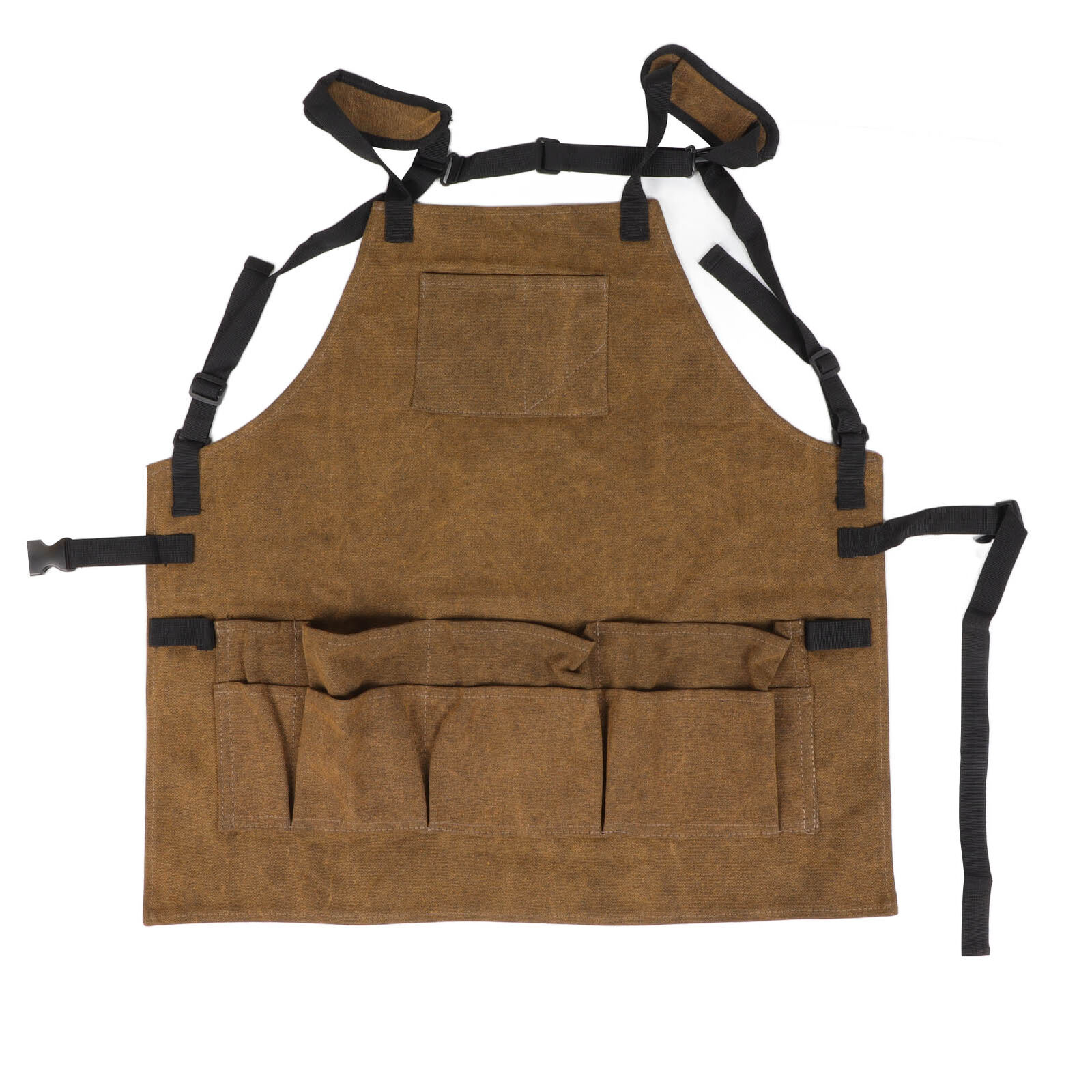

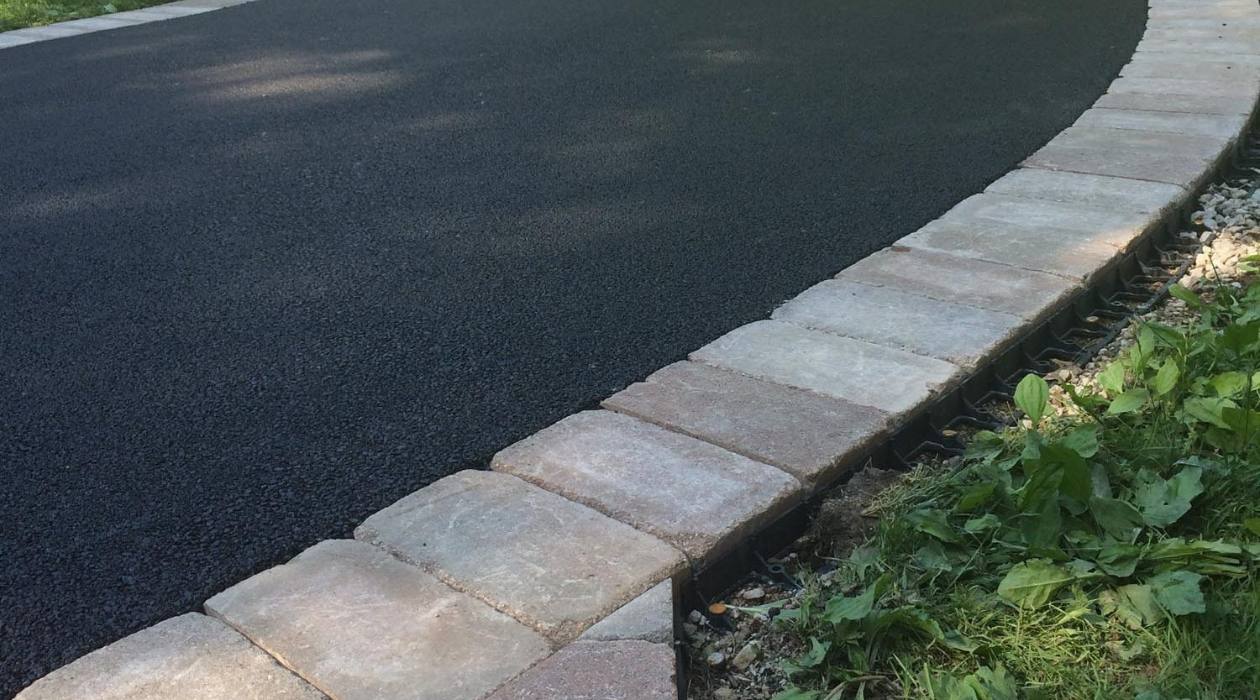
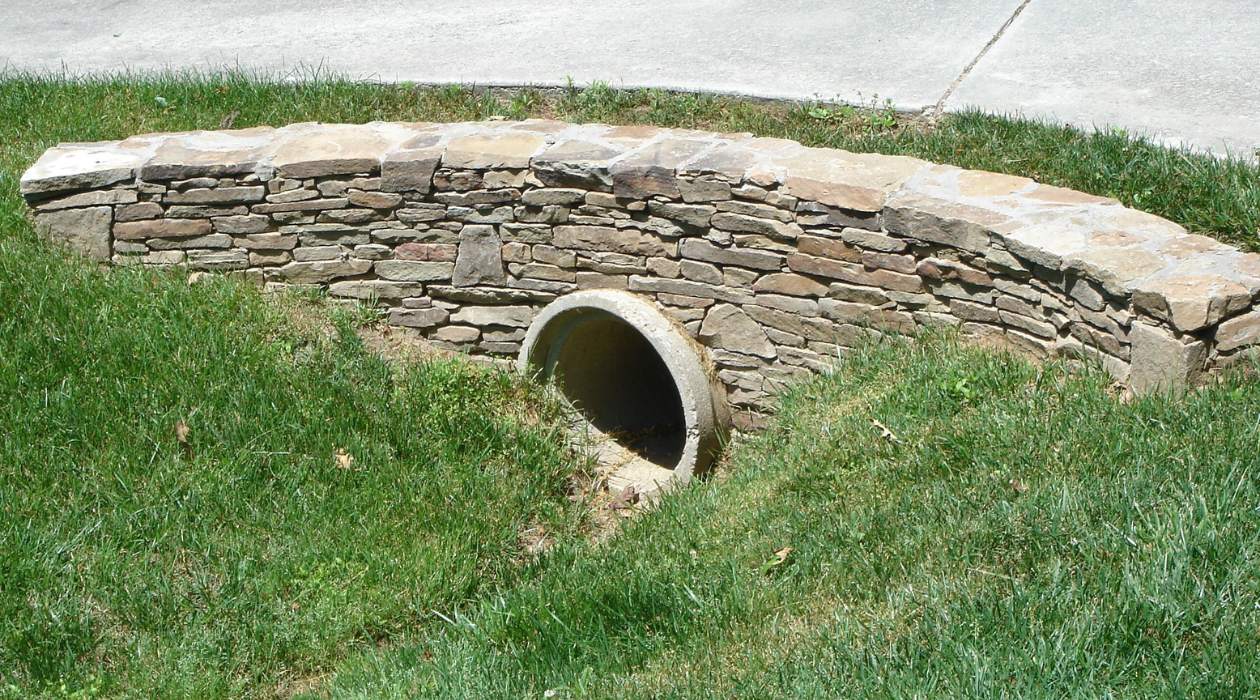


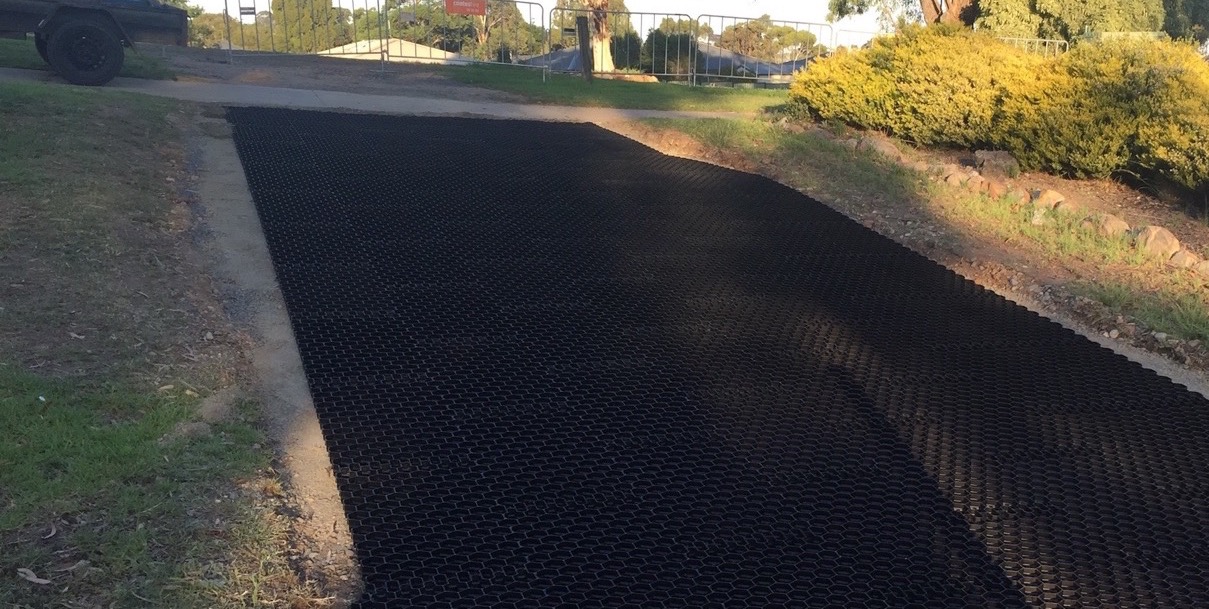
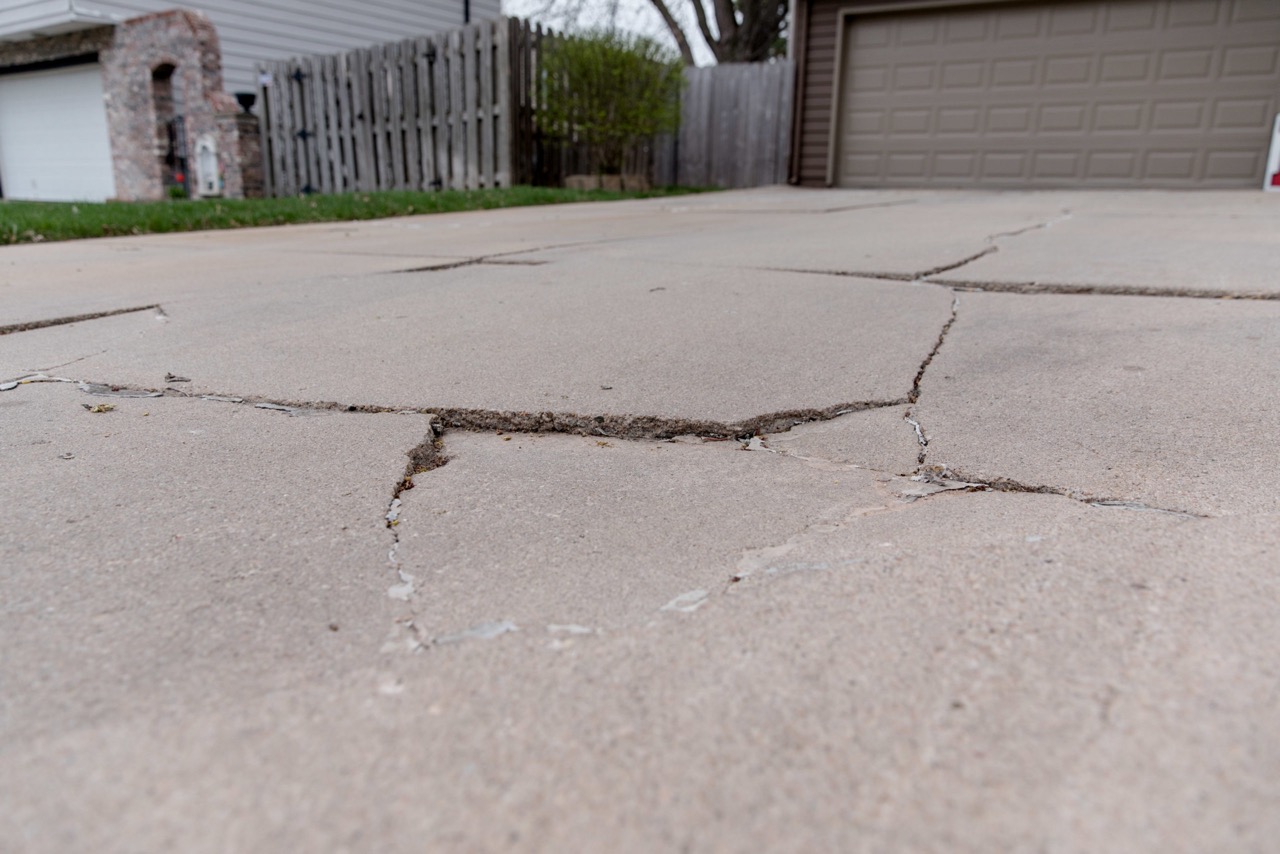
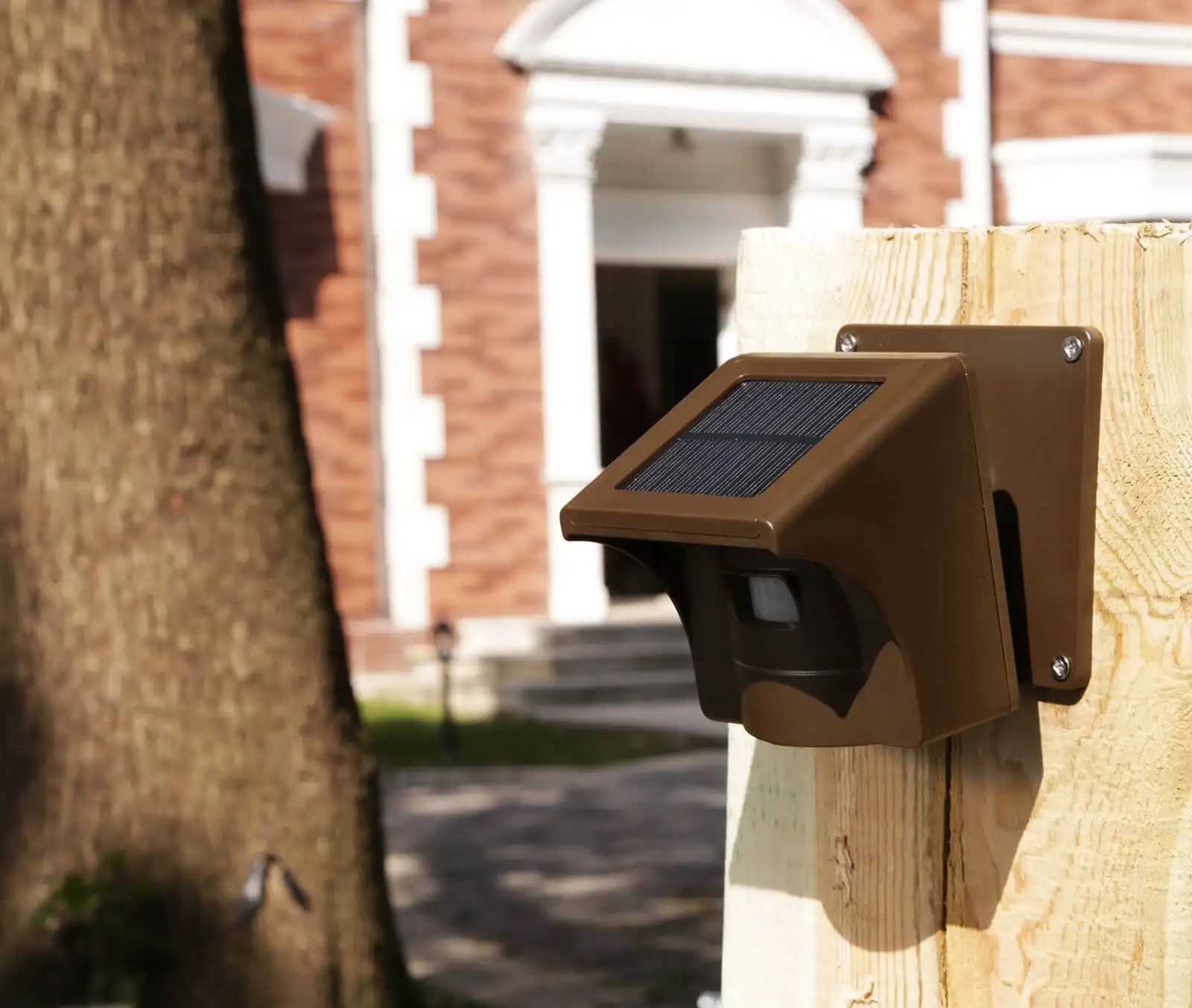
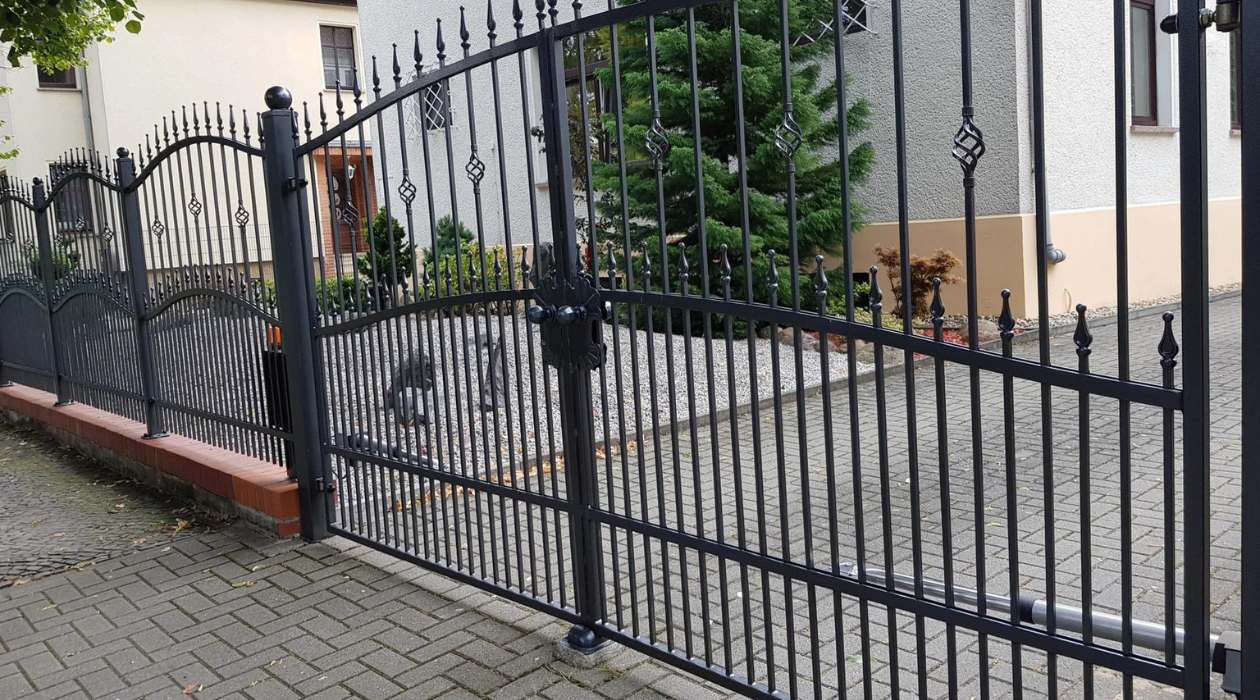

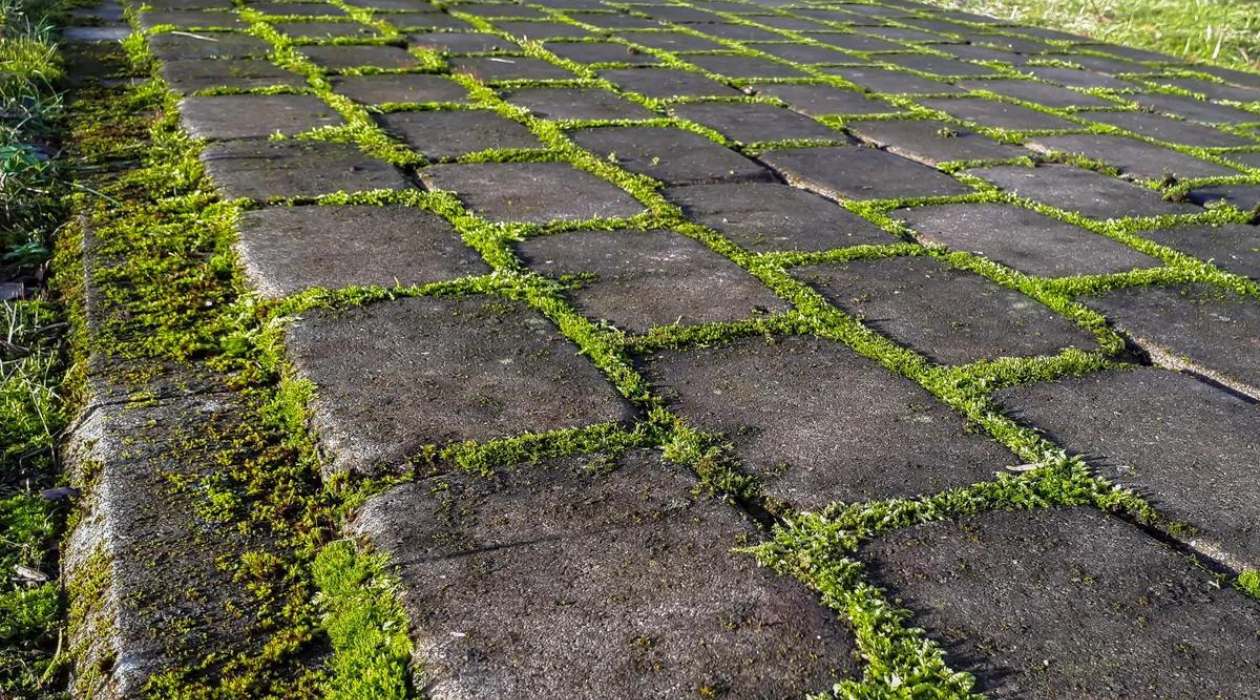
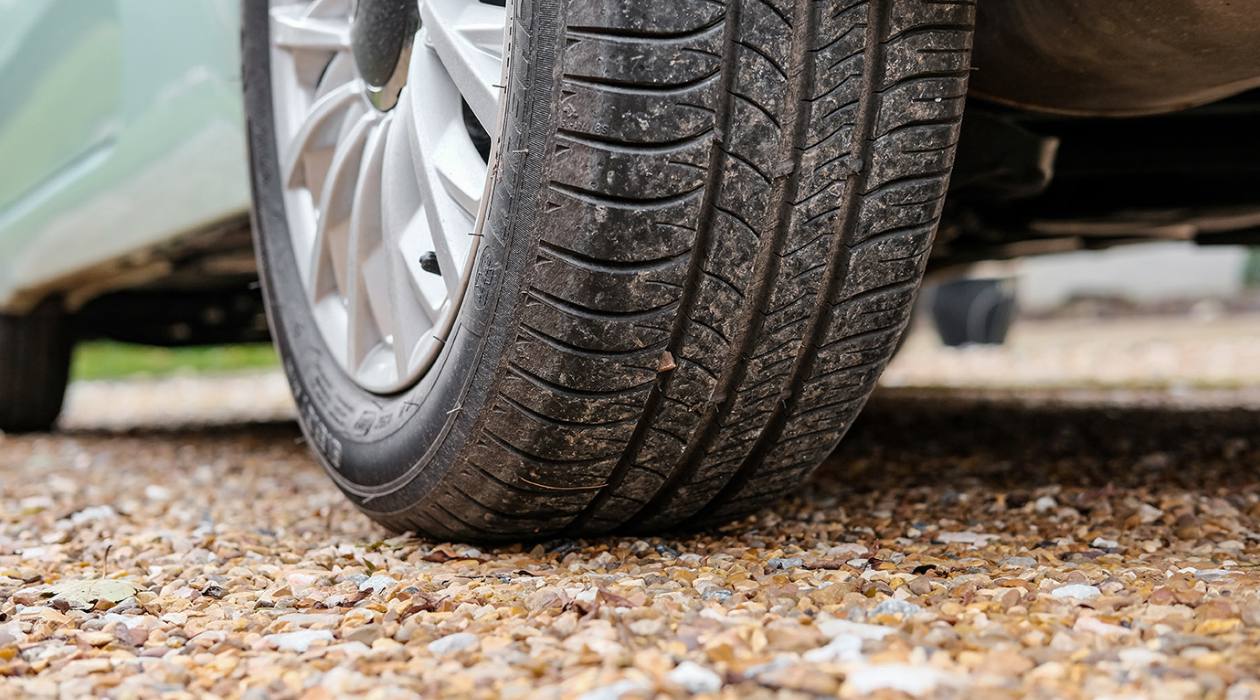

0 thoughts on “What Is A Driveway Apron”